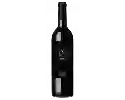
Château d'AgelCaz'Ailes Rouge
In the mouth this red wine is a powerful with a nice balance between acidity and tannins.
This wine generally goes well with beef, veal or pasta.
Taste structure of the Caz'Ailes Rouge from the Château d'Agel
Light | Bold | |
Smooth | Tannic | |
Dry | Sweet | |
Soft | Acidic |
In the mouth the Caz'Ailes Rouge of Château d'Agel in the region of Languedoc-Roussillon is a powerful with a nice balance between acidity and tannins.
Food and wine pairings with Caz'Ailes Rouge
Pairings that work perfectly with Caz'Ailes Rouge
Original food and wine pairings with Caz'Ailes Rouge
The Caz'Ailes Rouge of Château d'Agel matches generally quite well with dishes of beef, pasta or veal such as recipes of wild boar with honey, eggplant lasagna or sot- l- leaves.
Details and technical informations about Château d'Agel's Caz'Ailes Rouge.
Discover the grape variety: Lival
Lival noir is a grape variety that originated in France (Languedoc). It produces a variety of grape used for wine making. However, it can also be found eating on our tables! Lival noir can be found cultivated in these vineyards: South-West, Cognac, Bordeaux, Rhône Valley, Languedoc & Roussillon, Provence & Corsica.
Last vintages of this wine
The best vintages of Caz'Ailes Rouge from Château d'Agel are 2019, 0, 2018
Informations about the Château d'Agel
The Château d'Agel is one of of the world's greatest estates. It offers 26 wines for sale in the of Minervois to come and discover on site or to buy online.
The wine region of Minervois
Minervois is an appellation for distinctive red wines from the western Languedoc region of France. In general, they are softer than those produced in the Corbières, just to the South. The Minervois appellation also covers rosé and white wines. The predominant Grape varieties used in AOC Minervois wines are Grenache, Syrah and Mourvèdre.
The wine region of Languedoc-Roussillon
Languedoc (formerly Coteaux du Languedoc) is a key appellation used in the Languedoc-Roussillon wine region of southern France. It covers Dry table wines of all three colors (red, white and rosé) from the entire region, but leaves Sweet and Sparkling wines to other more specialized appellations. About 75% of all Languedoc wines are red, with the remaining 25% split roughly down the middle between whites and rosés. The appellation covers most of the Languedoc region and almost a third of all the vineyards in France.
The word of the wine: Mutage
The act of adding alcohol to a fresh grape must or to a fermenting must.











